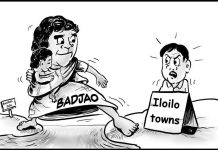
WHEN a Math teacher is made to teach Media Arts, or an English major handles MAPEH (Music, Arts, Physical Education, and Health), something is profoundly wrong with the system. The situation now unfolding in Western Visayas — where more than 3,000 teaching positions remain unfilled, as reported by this paper recently — exposes not only a shortage of personnel, but also a deeper problem in the quality of instruction our students receive.
Teacher mismatch has become an uncomfortable reality in many public schools. Educators trained for one field are often reassigned to teach subjects far outside their specialization simply because there is no one else available. In Capiz, for instance, a Mathematics teacher now teaches Media Arts; in Roxas City, a Filipino major handles Araling Panlipunan and Edukasyon sa Pagpapakatao; and in Iloilo, another Math teacher doubles as a Values Education instructor. These are not isolated cases — they paint a picture of a system straining to function with inadequate manpower.
Such mismatches inevitably compromise learning outcomes. Teaching requires mastery, and mastery requires years of study, training, and experience. When a teacher has to grapple with unfamiliar subjects, both teaching quality and student comprehension suffer. Lessons become mechanical, confidence weakens, and students sense the lack of depth. In the long run, it breeds disengagement and erodes trust in the classroom — a place that should inspire curiosity and confidence, not confusion.
The Department of Education’s data reveal the magnitude of the problem: as of September 2025, Western Visayas had 53,081 filled teaching positions, but 3,272 remain vacant. These numbers translate to overcrowded classrooms, overworked teachers, and misplaced expertise. Local education officials may downplay the mismatch, but teachers on the ground are telling another story — one of exhaustion, improvisation, and quiet frustration.
While assigning teachers outside their specialization may seem like a practical, temporary fix, it is a costly compromise. Students are shortchanged, teachers are demoralized, and the entire education system is weakened. The long-term damage — in the form of poor academic performance and diminished career readiness — cannot be ignored.
It is time to recognize that quality education depends not only on classrooms, books, or gadgets, but on teachers who are well-trained, well-matched, and well-supported. Filling vacant positions should not be treated as a routine administrative task but as an urgent investment in the region’s future.
Western Visayas deserves an education system where teachers can teach what they truly know — and where students can learn from the best of what those teachers have to give.







